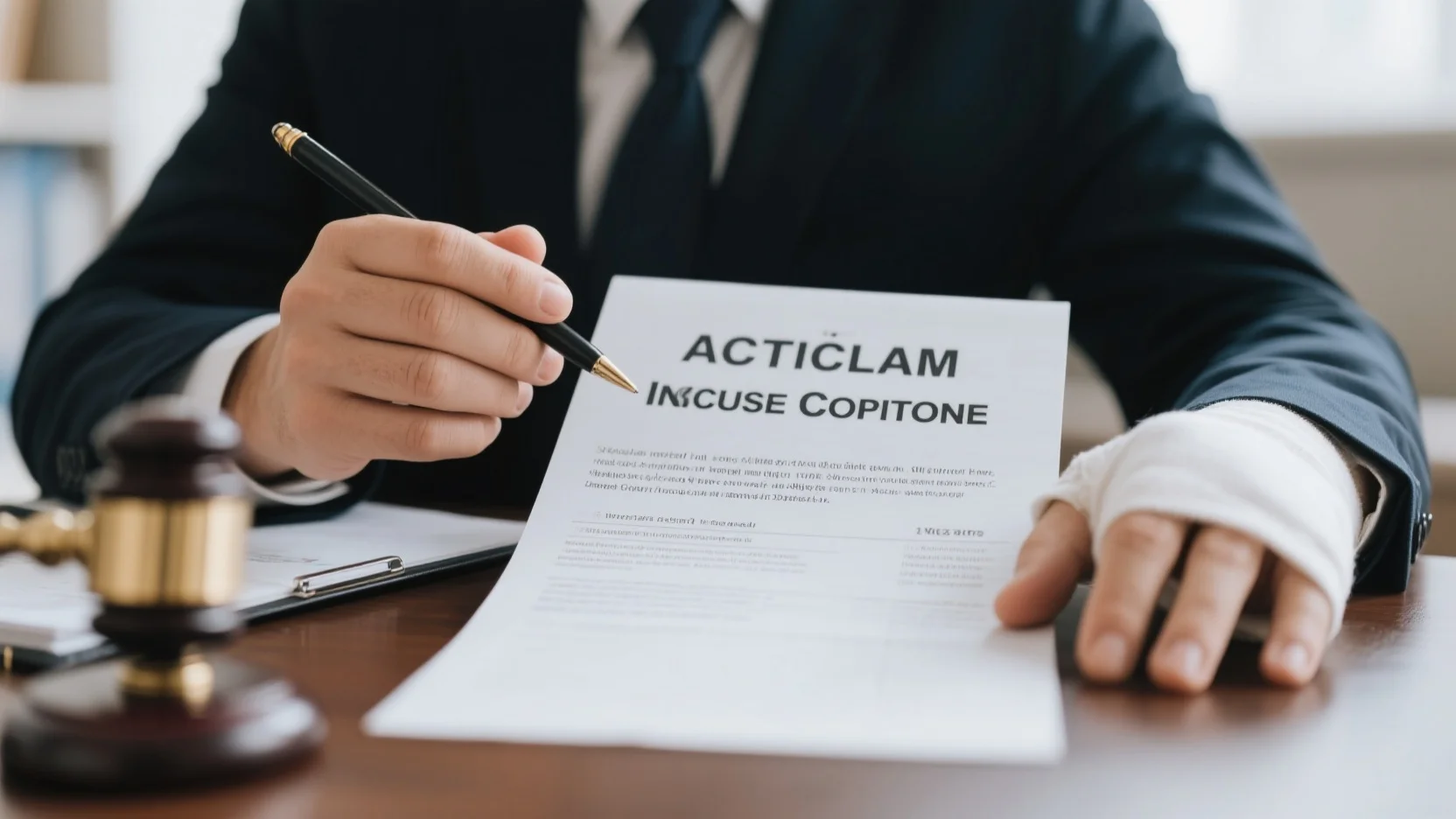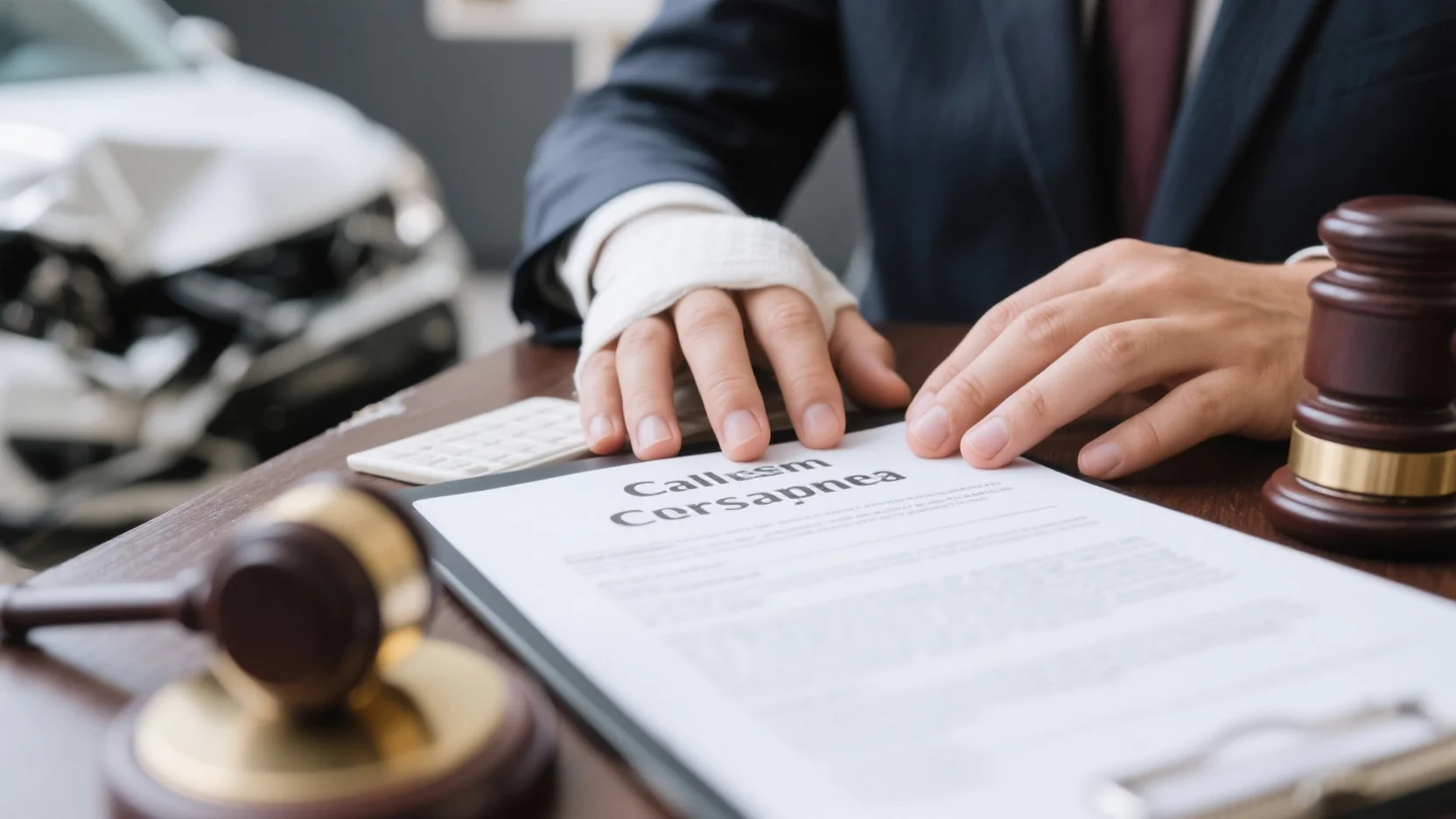
Image Source: pexels
If you’re wondering how to legally increase the compensation rate in accident claims, there are a few key steps to follow. Start by keeping detailed records of everything—photos, witness information, and police reports—as these strengthen your claim. Seeking immediate medical attention is crucial, as it provides clear evidence of your injuries. Lastly, avoid accepting the first offer from insurance companies; negotiating can help you secure a fair and higher settlement.
Key Takeaways
- See a doctor immediately after the accident. Fast care shows proof of injuries and helps your case.
- Gather clear evidence from the accident scene. Take photos, get witness accounts, and save police reports to explain what happened.
- Record all expenses caused by the accident. Save medical bills, note lost income, and write down emotional effects to claim the right amount.
Immediate Steps to Strengthen Your Claim
Get Medical Help Quickly
After an accident, I always get medical help right away. This is important for my health and my claim. Quick care stops injuries from getting worse. For instance, untreated broken bones may heal wrong, and delayed checks for head injuries can cause serious problems. Doctors record my injuries, treatments, and recovery, which helps my case.
Early medical records are key to getting fair compensation. They connect injuries to the accident and protect against disputes.
I know insurance companies check for delays in treatment to argue against claims. By getting care fast, I show my injuries are from the accident. These records are strong proof when dealing with insurers or in court.

Gather Proof at the Accident Scene
Collecting proof at the accident scene is also very important. Photos of damage, injuries, and the area show what happened. I also get witness names and their statements. These help prove my side of the story and show who was at fault.
I take pictures of everything, like broken car parts, ripped clothes, and airbags that went off. These details explain the accident and support my claim. Police reports and fault findings make my case stronger.
By doing these things, I make sure my claim has solid proof. This makes it harder for insurance companies to argue against my compensation.
Building a Strong Case
Keep Track of All Costs and Damages
After an accident, I always write down every cost and damage. This includes doctor bills, car repairs, and even small costs like rides to appointments. I save all receipts and bills as proof. If I miss work because of injuries, I note lost wages too. These records help me figure out the total money lost from the accident.
To make my case stronger, I take pictures of damaged items and save medical records. These show how bad my injuries are and what treatments I needed. For example, medical records often have notes about my pain and healing progress. This is very helpful when talking to insurance companies or going to court.
Tip: Use a folder or computer file to keep all accident papers safe and easy to find.
Figure Out Non-Money and Long-Term Damages
Non-money damages are harder to count but still important. I think about how the accident changed my life in other ways. For example, I consider pain, sadness, or missing out on fun activities. These damages can include:
- Pain and suffering
- Emotional struggles
- Loss of enjoyment in life
- Scars or permanent marks
To prove these, I write in a journal about my daily problems and feelings. Friends or family can also share how I’ve changed. Experts like therapists or doctors can support my claims too.
For long-term damages, I ask doctors to check how my injuries will affect me later. They might say I’ll need therapy or have lasting issues. I use methods like multiplying my medical costs by a number based on how bad my injuries are. Another way is to give a dollar value for each day I’m in pain.
By keeping track of these damages and using fair ways to count them, I make sure my claim shows how much the accident really affected me.
Legal and Negotiation Strategies
Get Help from an Experienced Attorney
It’s smart to hire an attorney for accident claims. They know the law and handle tricky claim processes. Attorneys make sure deadlines are met and gather strong evidence.
| Legal Help Benefits | What It Means |
|---|---|
| Claim Expertise | Attorneys file claims, collect proof, and meet deadlines. |
| Ready for Court | They represent you in court if talks fail. |
| Pay Only If You Win | You pay only if the case is successful. |
| Avoid Mistakes | Attorneys help prevent errors that could hurt your case. |
I like the "pay only if you win" system. It lets me get legal help without upfront costs. This makes attorneys work harder to win the case.
Talk Smartly with Insurance Adjusters
Talking to insurance adjusters can be tough, but I follow steps. First, I collect all papers about my claim. These include accident reports, medical bills, repair costs, and pictures. I also read my insurance policy to know my rights.
Here’s how I handle talks:
- Stay calm and polite during the first call.
- Share clear facts with strong proof.
- Add up all costs, like medical bills and lost pay.
- Write a letter asking for fair compensation.
- Check any offer carefully before saying yes.
Tip: Be polite and never admit fault. Let your proof do the talking.
Adjusters often give low offers or delay things. They might even question my medical care. By staying ready and focused, I make sure my claim gets fair attention.
Acting quickly after an accident is very important. I make sure to note everything, like medical costs and emotional pain. These details help make my case stronger and ensure fair compensation. Getting help from a lawyer has been very helpful. They know the laws and stop me from making mistakes, like taking a low offer.
Tip: Waiting too long for medical care or filing a claim can hurt your case.
Knowing my legal rights has helped me fight for fair payment. If you’re unsure what to do, talking to a lawyer can really help. They’ll explain the steps and help you get the most from your claim.
FAQ
What should I avoid saying to insurance adjusters?
- Never say it was your fault or act like you’re fine.
- Don’t give recorded statements without asking a lawyer first.
Tip: Share only facts and let your proof do the work.
How long do I have to file an accident claim?
The time limit changes by state. Always check local rules or ask a lawyer to avoid missing the deadline.
Can I handle my claim without a lawyer?
Yes, but it’s harder to gather proof or negotiate alone. Getting a lawyer makes it easier to get fair payment.
Note: Lawyers know how to deal with tricky insurance moves.


